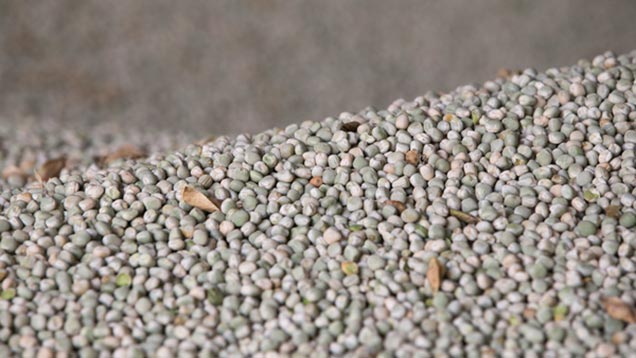New pea variety could help livestock and poultry absorb more protein
 ©Tim Scrivener
©Tim Scrivener Scientists at the John Innes Centre have bred novel types of pea plants that make their protein content more accessible to livestock and poultry when consumed.
It means greater nutritional value from smaller amounts, and less protein is wasted in the animals’ manure, both of which are beneficial to the environment.
See also: Tips for free-range egg producers
The team developed the new pea plant without genetic modification, meaning the plant could find its way to the UK market with few regulatory hurdles. The new breed is understood to taste similar to existing strains.
Clair Domoney, who led the research, said a wild pea which lacked the protein-inhibiting element of more commercial pea plants had been successfully crossed with a more common cultivar.
This highlighted the value of researchers keeping large banks of different genetic material, she added.
The paper was entitled Eliminating anti-nutritional plant food proteins: the case of seed protease inhibitors in pea, and was published in journal PLOS ONE.
It was funded by the Defra Pulse Crop Genetic Improvement Network, the EU Grain Legumes Integrated Project and the Biotechnology and Biological Sciences Research Council.
